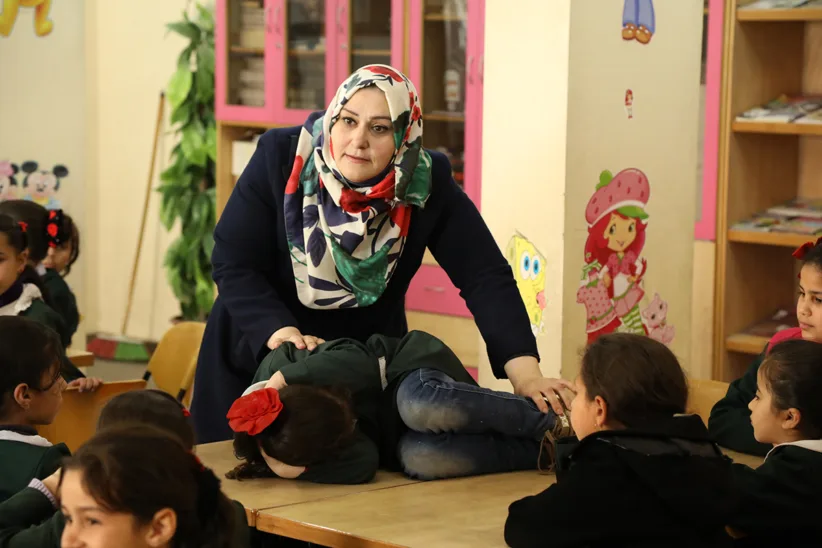Modern conflicts are increasingly long-lasting and fighting often takes place in urban areas. The use of explosive weapons in populated places causes extreme suffering, destruction of houses, hospitals and critical infrastructure and leads to displacement, trauma, injuries and death.
Parties to conflict have an obligation to protect civilians. However, civilians are often left to fend for themselves, with little or no respect for their rights and with slim chances of fleeing to safety.
In such situations, people ought to know basic safety and survival skills. NPA, through its Conflict Preparedness and Protection (CPP) programme, empowers civilians with the tools and knowledge they need to be better prepared and protected against the use of explosive weapons, and other conflict related threats.

Since 2016, a total of 183,000 people in Syria, Iraq and Palestine have received training in Conflict Preparedness and Protection (CPP). The programme has been developed by Norwegian People’s Aid and is being implemented in partnership with local organisations and enterprises, including schools.
The programme focuses on how to protect yourself against explosive weapons and how to prevent injuries and suffering in war situations. It includes a component of preparedness, safer behavior during an attack, and safer behavior in the aftermath of an attack. CPP has many similarities to Explosive Ordnance Risk Education (formally known as MRE), and actively incorporates safety messages related to unexploded ordnance, as well as to other conflict related threats. The programme is adapted for different age groups, languages, cultures and contexts, taking the existing risks and behavior patterns into consideration.
When explosive weapons are used in populated areas, over 90 % of those killed and injured are civilians
Civilians should never be the target in conflicts; however, conflicts are becoming increasingly urbanised and civilians are the main casualties when bombs explode in populated areas. Just as with fire drills, these exercises are designed to teach people what they can do to help ensure their own safety, for example through evacuation, basic fire-safety and first-aid routines.
Variety of needs and a variety of outreach methods
- Norwegian People’s Aid has prepared educational materials and trains local organisations and teachers as "safety instructors". The course reflects local conditions and uses games, presentations, exercises, social media platforms and theatre to get its message across.
- Norwegian People's Aid also engages in advocacy efforts to improve the protection of civilians from explosive weapons and urban warfare. Unfortunately, there is a long way to go before civilians' right to protection in war is respected. As members of the international NGO coalition INEW, we work for policy change and better procedures to protect civilians.
